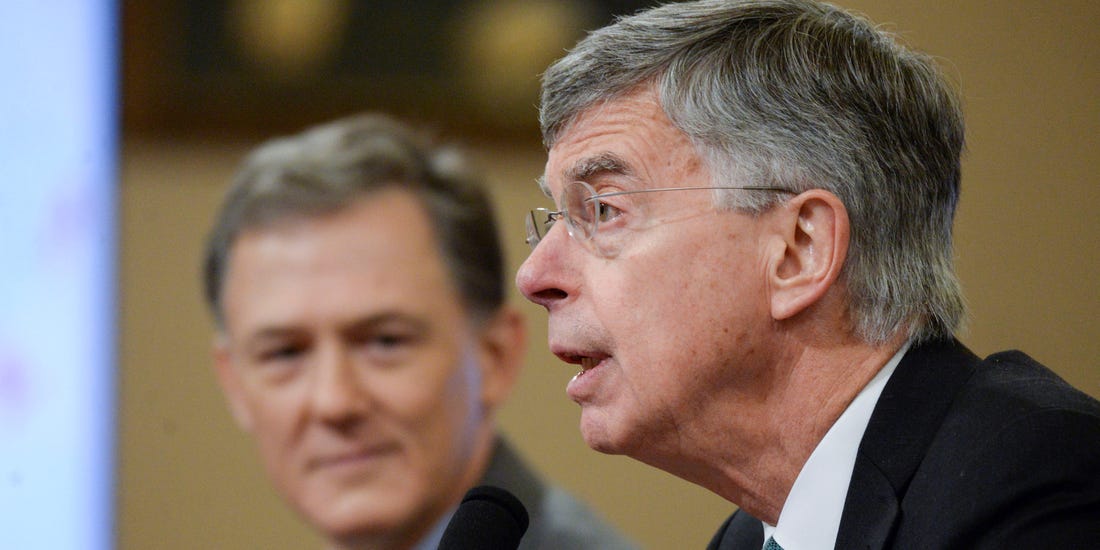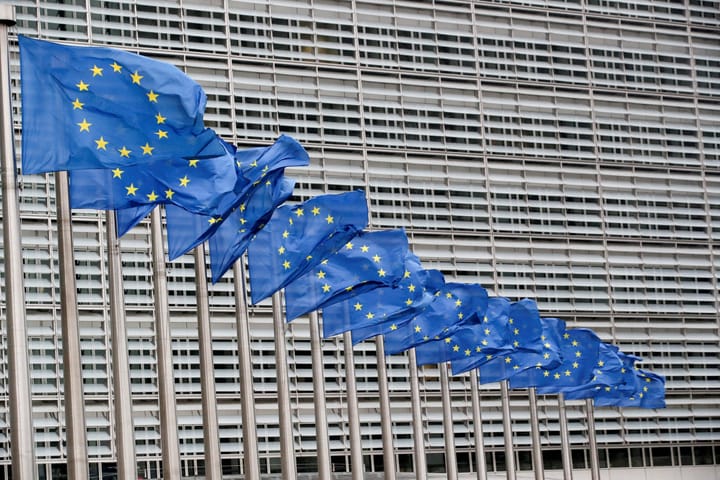First witnesses testify in public impeachment hearings

A few minutes every morning is all you need.
Stay up to date on the world's Headlines and Human Stories. It's fun, it's factual, it's fluff-free.
The public hearings in the impeachment inquiry against President Trump began on Wednesday, November 13. Among the witnesses to provide testimony to the House Intelligence Committee thus far are William B. Taylor, the acting US Ambassador to Ukraine, and Deputy Assistant Secretary of State in the European and Eurasian Bureau George Kent. These testimonies form part of the first public impeachment hearings in two decades.
Background of the hearings
The impeachment inquiry focuses on efforts by President Trump to coerce a foreign nation into boosting his re-election chances. He stands accused of abusing the power of his office to pressure Ukraine’s newly elected president, Volodymyr Zelensky, to uncover damaging information on Joe Biden, a Democratic challenger for president, and his son Hunter Biden.
A transcript of a July 25 call between Trump and Zelensky revealed that the US president urged his Ukrainian counterpart to investigate his political rival. The call came shortly after Trump had blocked the release of millions of dollars in vital military aid to Ukraine.
In August this year, an anonymous whistleblower made an official complaint alleging Trump used his office to “solicit interference from a foreign country" in the 2020 presidential election.
House Speaker Nancy Pelosi announced impeachment proceedings on September 24, by saying “The actions of the Trump presidency have revealed the dishonorable fact of the president’s betrayal of his oath of office, betrayal of our national security, and betrayal of the integrity of our elections."
The hearings could lead to the House of Representatives voting to impeach a president for only the third time in US history.
After two months of closed depositions and interviews, the first hearings were broadcast live to the American public on November 13. The broadcast of the hearings gave many Americans their first look at the impeachment proceedings.
The hearings on Wednesday were the first of five that have been scheduled by the House Intelligence Committee. The Democrats hope that the public hearings will determine that Trump abused the power of his office.
After the hearings are completed, House Democrats will then decide whether to submit and vote on articles of impeachment against the president.
The witnesses Taylor and Kent are believed to possess key information that solidifies their case for impeaching Trump. Ambassador Taylor has reportedly delivered “some of the most explosive testimony in this inquiry so far.”
The White House had instructed Kent not to cooperate with the inquiry. Taylor and Kent both received subpoenas to attend the public hearings. The diplomats had previously testified in behind-closed-door depositions last month.
Taylor is a highly respected career public servant. He served as an infantry officer in Vietnam and worked for the State Department for decades, including an earlier stint as ambassador to Ukraine. He has been the top US diplomat in Ukraine since the middle of this year.
Kent is a career foreign service officer, serving as deputy assistant secretary for the Bureau of European and Eurasian Affairs. He has been described as someone who has extensive knowledge of Ukraine and the broader region.
The hearing begins
In the opening statements, Democratic and Republican members of the House Intelligence Committee demonstrated the difference of opinion between the two parties regarding the impeachment inquiry.
Adam Schiff, a Democrat from California and chairman of the House Intelligence Committee, said in his opening statement that:
“If we find that the president of the United States abused his power and invited foreign interference in our elections, or if he sought to condition, coerce, extort or bribe an ally into conducting investigations to aid his re-election campaign and did so by withholding official acts, a White House meeting or hundreds of millions of dollars of needed military aid, must we simply get over it? Is this what Americans should now expect from their president?”
The ranking Republican member Devin Nunes has opposing views, saying:
“We’re supposed to take these people at face value when they trot out a new batch of allegations. But anyone familiar with the Democrats’ scorched-earth war against President Trump would not be surprised to see all the typical signs that this is a carefully orchestrated media smear campaign.”
[article_ad]
Diplomats paint a consistent picture
Despite Republican members of the committee suggesting otherwise, both diplomats insisted they were non-partisan public servants who were “not here to decide upon impeachment.”
Instead, both diplomats said it was their role to advance US interests and bolster Ukraine’s ability to counter Russian aggression. Kent told the panel that, following the 2014 invasion of Crimea, 7% of Ukraine’s territory is under Russian occupation. They also said the ability of Ukraine to counter Russian aggression is critical to US national security.
Throughout the hearing, which lasted over five hours, both Kent and Taylor described efforts by the president’s lawyer Rudy Giuliani and other US diplomats that jeopardized American foreign policy in Ukraine.
Both said they eventually came to believe the release of vital military aid to Ukraine, worth nearly $400 million, was conditional on the Ukrainian President Zelensky investigating former Vice President Joe Biden and his son Hunter.
The diplomats also understood that Trump wanted Zelensky to announce an investigation into Burisma, a Ukrainian energy company of which Hunter Biden, the former vice president’s son, was a board member.
Kent testifies first
The hearing began with George Kent becoming the first witness to publically testify in the impeachment hearings against President Trump.
In his testimony, Kent said efforts to “gin up politically motivated investigations” were “infecting” US policy on Ukraine. He added that, by mid-August, he had concluded that Giuliani’s efforts to pressure Zelensky to investigate Trump’s political rivals “were now infecting US engagement with Ukraine, leveraging President Zelensky’s desire for a White House meeting.”
Kent also described a campaign to smear American officials serving in Ukraine. This campaign culminated in the ousting of Marie L. Yovanovitch, the former United States ambassador to Ukraine.
In describing the campaign, Kent said that “it was unexpected, and most unfortunate, however, to watch some Americans — including those who allied themselves with corrupt Ukrainians in pursuit of private agendas — launch attacks on dedicated public servants advancing US interests in Ukraine.”
After finishing his opening statement, Democratic counsel Daniel Goldman questioned Kent about his testimony. Responding to this, Kent stated that requesting Ukraine to conduct political investigations was not part of US foreign policy that promoted the rule of law in Ukraine and around the world.
[article_ad]
Taylor makes a new revelation
Ambassador Taylor read his opening statement to the Committee after Kent. He revealed that a member of his staff overheard a telephone conversation in which Trump mentioned the investigations to Gordon D. Sondland, the US ambassador to the European Union. Taylor claimed that Sondland told Trump “that the Ukrainians were ready to move forward.”
After the call, Taylor said a staff member asked Sondland what the president thought of Ukraine. Sondland “responded that President Trump cares more about the investigations of Biden, which Giuliani was pressing for” than Ukraine.
Taylor also told the House Intelligence Committee that he didn’t pass this information to investigators in his earlier deposition because he wasn’t aware of it at the time.
During his testimony, Taylor described Rudy Giuliani as the leader of a “highly irregular” policymaking channel on Ukraine that contradicted long-standing American policy goals.
The New York Times reports that much of Taylor’s testimony was consistent with what he had previously told investigators. In his detailed account, Taylor spoke of how he discovered that Trump was conditioning everything about the US relationship with Ukraine, including military aid and a White House meeting for Ukraine’s president, on President Zelensky publicly committing to investigations into his political rivals.
Taylor testified that he didn’t think the Ukrainians knew that military aid was on hold at the time of the July 25 phone call.
Later on, however, Taylor affirmed that the Ukrainians became aware that they wouldn’t get military aid or an Oval Office meeting without complying with Trump’s demands.
Goldman asked Ambassador Taylor if “in your decades of military service and diplomatic service representing the United States around the world, have you ever seen another example of foreign aid conditioned on the personal or political interests of the president of the United States?” To which Taylor replied, “No, mister Goldman, I’ve not.”
Following Taylor’s testimony, the House Intelligence Committee called David Holmes, the aide who overheard the conversation between Trump and Sondland, to testify in a closed deposition on November 15.
Republicans criticize impeachment proceedings
Some analysts argue that the Democrats need to convince the public that what the president has done is an impeachable offense. Conversely, others say that the Republicans need to cast doubt about the Democratic case so that the public does not support impeachment and the removal of the president from office.
After Taylor and Kent finished testifying, Republican members of the committee claimed the information provided by the witnesses was second or third-hand.
Jim Jordan, a Republican representative from Ohio who was recently moved onto the House Intelligence Committee, said that he has seen “church prayer chains that are easier to understand” than the case for impeachment against the president.
When questioning Ambassador Taylor, Jordan pointed out that neither of the witnesses has met the president and that the phone call wasn’t mentioned in three meetings Trump had with President Zelensky. Jordan highlighted Zelensky never announced an investigation into Burisma or the Bidens.
According to the New York Times, the Republican strategy at the November 13 impeachment hearings was to raise unproven theories about Joe Biden’s son and allegations that Ukraine conspired with Democrats to interfere in the 2016 election.
In his opening statement, Devin Nunes said, “They accuse President Trump of malfeasance in Ukraine when they, themselves, are culpable. The Democrats cooperated in Ukrainian election meddling, and they defend Hunter Biden’s securing of a lavishly paid position with a corrupt Ukrainian company.”
Nunes’ allegations were part of the Republican strategy to defend Trump by attempting to shift the conversation away from the evidence assembled by Democrats and instead focus on President Trump’s grudges.
Trump responds but doesn’t watch hearings
Trump has said he was “too busy to watch" the impeachment proceedings. Despite this claim, he tweeted and retweeted several posts about the inquiry on Wednesday.
After the conclusion of the hearing, Trump told reporters he wants to find out who the whistleblower is. He has also denied he had any knowledge of the phone call with Sondland that Taylor revealed in his opening statement. “I know nothing about that, first time I’ve heard.”
“The one thing I know about Sondland is that he did speak to me for a brief moment, and I said no quid pro quo,” Trump added while speaking at a press conference with Turkish President Recep Erdogan.
[article_ad]




Comments ()